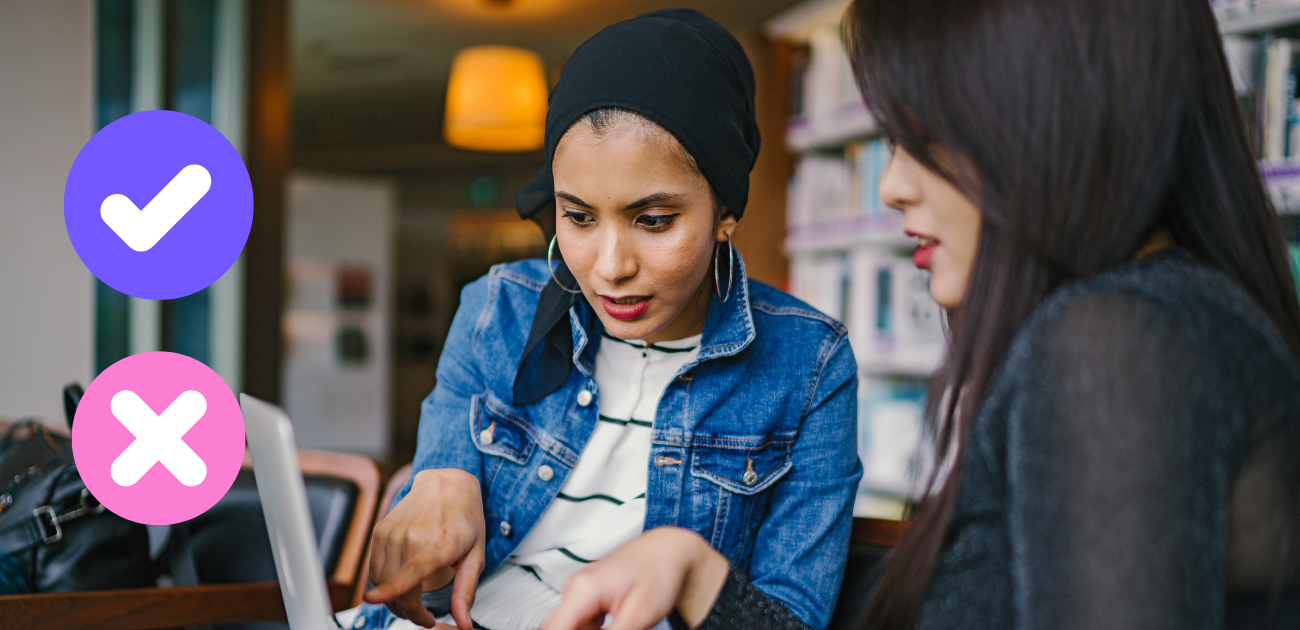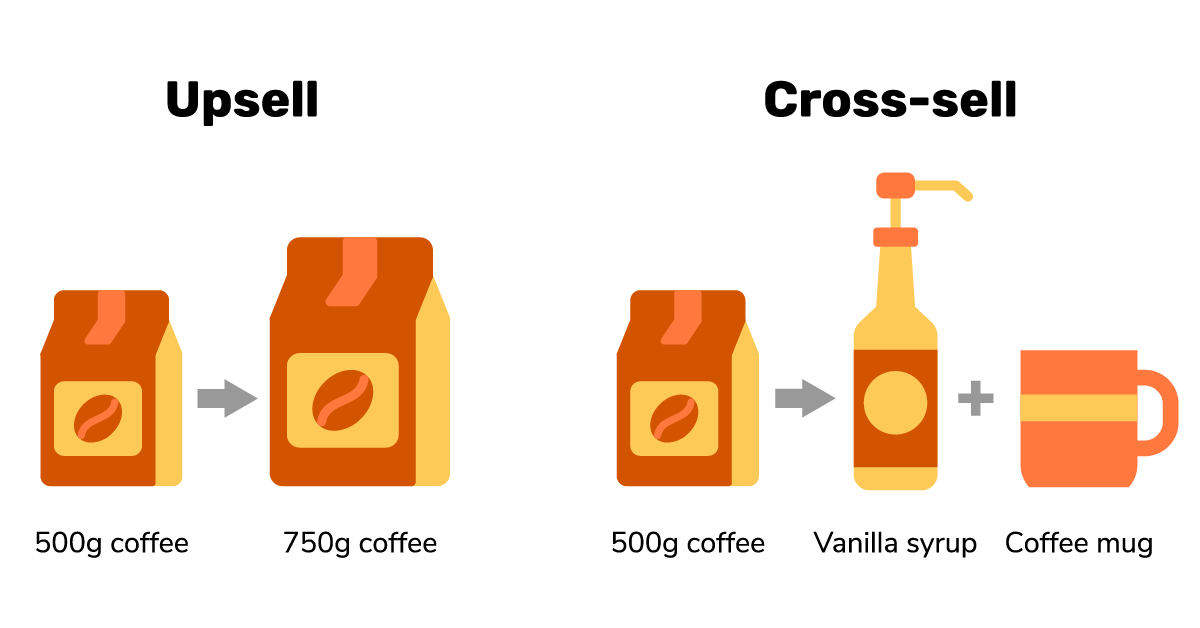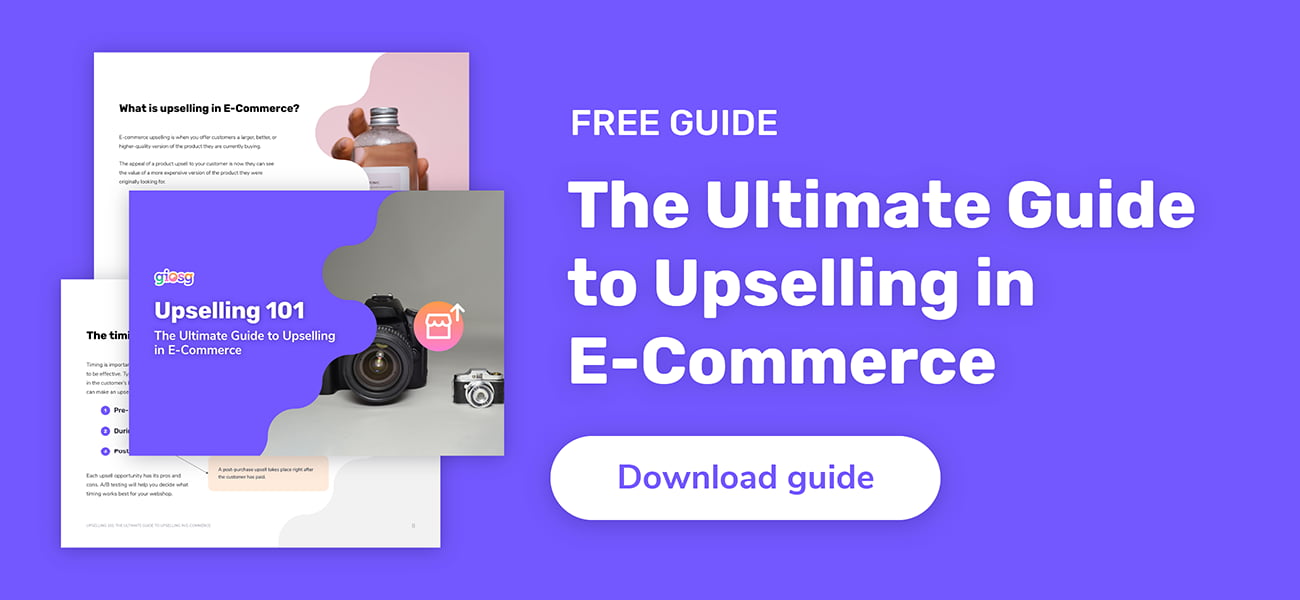There’s a right way and a wrong way to go about upselling, and we want to help you decipher between the two so you can actually get the most benefits out of upselling.
Upselling is a strategy that e-commerce shops can do to help increase the average order value of customers. There’s a slight difference between upselling and cross-selling, but the idea of both is that the customer either upgrades a chosen product to a higher-quality version of the same product or adds more items to his order.
We asked e-commerce experts if they had any tips for successful product upselling, and they did not disappoint. Here’s a list of 5 of their most important dos and don’ts of upselling.

1. DO make relevant complementary products easily visible
Pop-ups are one way you can ensure a customer sees your cross-sell offer. You'll want to make sure the offers you are popping up front and centre are relevant offers that will reduce the pain points.
Thoughtfully plan out which of your products should be bought together
DON’T interfere in the shopping journey too much
Avoid interrupting the customer’s experience by sending multiple pop-ups, and promoting bundles that aren’t relevant.
Don’t push your own agenda for trying to boost sales of a specific product, but rather take time in thinking about which of your items are appropriate to sell together.
- Kenny Kline, BarBend
2. DO consider the price range of your upsell, make it proportionate
When you’re upselling, price does matter. It’s important to make the value of the upgrade very clear. Entice customers with quality and value benefits. For example, if a customer buys a 500€ blazer, offering an accompanying 50€ tie that goes well with the blazer is reasonable
DON’T shoot for the stars with your upsells
A crazy jump in price for a product upsell can be a huge turn-off for a buyer. If a customer buys a 50€ tie, you shouldn’t offer them a 500€ blazer to compliment that tie. Be tactful.
- Ellie Shippey, EZContacts
3. DO set realistic goals
It’s essential to set goals that are attainable, and that starts with knowing your baseline. For setting upsell goals for your e-commerce shop, look first at your average transaction value then set a goal on how much you want to increase it based on upsells.
DON’T only rely on cross-selling to achieve goals
Focusing on offering complementary products to customers' orders may be tempting if you have a wide range of products, but keep in mind that upselling is often easier to boost average transaction value.
This is because it’s easier to persuade customers to spend a bit more money on a product they already want than convincing them to spend money on a product they weren’t looking for initially.
- Martin Lassen, GrammarHow

4. DO get visual
Customers can’t feel, taste, or try products from an e-commerce store before buying them, so it’s important to paint a clear picture of your products. Highlight the benefits, especially. Make sure the customer knows why the product is worth it.
DON’T ignore the requested item
When cross-selling and upselling, use the requested item to your benefit as a reference point. Now, you can demonstrate how the upsell item has more benefits than the requested item. Or you can illustrate how the cross-sell item is an essential pairing for the requested item
- Zephyr Chan, Better Tools
5. DO use live chat for upselling opportunities
Jeff Moriarty from My Supplement Store says that ”live chat is the best way [they] cross-sell on the website.” When you engage in a live chat conversation with a customer, it provides an even more trustworthy line of communication.
Jeff states that if they can chat with a customer online, they can “almost always” cross-sell that customer a relevant product that works well in conjunction with the requested item.
DON’T only test one point on your website for upselling
There are several different points in the customer journey when you can offer an upsell on your website. Jeff advises considering the product pages, shopping cart, shipping and billing page, or even after checkout.
It’s important to remember not to offer an upsell at every single one of these points during one shopping session, but test out different places on your website and see which performs the best for you.

Conclusion
Upselling doesn’t have to be a guessing game. If you’re hoping to plan out your upselling strategy with more practical steps, download our free guide on “How to Upsell in E-Commerce” here.
